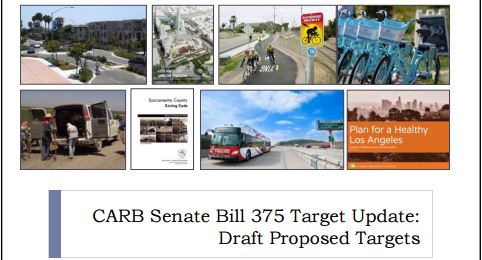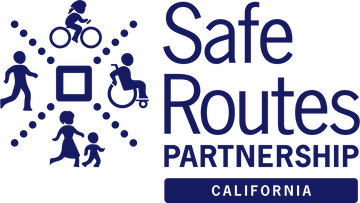
The California Air Resources Board (CARB) hosted three workshops on Senate Bill (SB) 375 in Bakersfield, Los Angeles and San Francisco to discuss the staff recommendations for regional greenhouse gas emission reduction targets.
Originally adopted in 2010, SB 375 set out to utilize the transportation planning process to achieve greenhouse gas (GHG) reduction goals as part of the state’s strategy on climate change. SB 375 legislation requires each Metropolitan Planning Organization (MPO) to create a Sustainable Communities Strategy (SCS) to achieve GHG reduction. This year, CARB initiated a process with the state’s MPOs to revisit and update their targets for reducing GHG.
CARB staff analyzed how to reach California’s climate and air quality goals, considering what each MPO could achieve with additional funding (such as the new funding approved through SB1). The CARB staff report makes the case for stronger SB 375 targets and highlights how it would enable the state to make significant strides to achieve its goals of a 25 percent reduction in GHG by 2035. CARB’s Scoping Plan identifies a reduction in Vehicles Miles Travelled (VMT) as a critical strategy to reduce GHG. Furthermore, the staff report’s analysis of the Scoping Plan’s demonstrated public health co-benefits of community health and air quality as a result of SB 375 reduction targets of GHG and VMT. CARB staff ultimately proposed an increase for each MPO for their 2035 targets. For example, SCAG’s new targets would change from a reduction of 13% (though the region is on track for an 18% reduction) to a reduction of 21%, and MTC’s would change from a 15% reduction (though the region is on track for a 16% reduction) to a 19% reduction. CARB’s recommendations were met with mixed sentiments from MPOs and their jurisdictions, especially from the SCAG region, who were concerned that the targets were greater than they could meet.
At the Los Angeles workshop, opponents of higher targets expressed concern over current transportation spending formulas, which they say give little flexibility to support projects that reduce VMT. Some were also concerned that increased VMT from lower gas prices, known as the rebound effect hurts the MPO’s ability to maintain current GHG reduction. However, public health and active transportation advocates–including the Safe Routes Partnership–hailed CARB’s proposed targets saying it is critical step for GHG reduction progress. Advocates also supported the targets from a social equity standpoint pointing out that the pollution burden weighs most heavily on the health of low-income and disadvantaged communities. Furthermore, additional resources from SB 1, the Volkswagen settlement and the Transformative Climate Communities Program (which total $53B over the next ten years) will give MPOs adequate funding to invest in climate strategies.
Comments are being accepted on proposed targets until July 28th. CARB will convene a roundtable to finalize staff recommendations in September and October.


